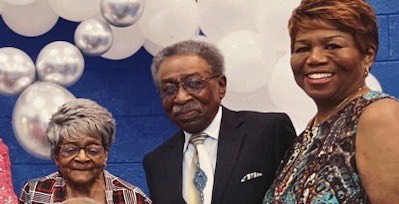Blog
You Don’t Know What You Don’t Know, Until You Need It.
- Posted on Nov 16, 2023

That seems to be an ongoing sentiment from caregivers these days. We met up with Jean Kirkley who founded the organization Boomers ‘R Heroes Caregivers Support Group (https://www.boomersrheroes.org). Its mission is to help caregivers survive their time in this role by providing a safe place to talk about how they feel and share their thoughts without judgment.
Most recently Jean became the live-in caregiver for her 91-year-old mother. In January 2022, they sold her mom’s home, Jean moved out of her apartment (was a resident at NewCourtland Apartments at Cliveden) and got a 2-bedroom apartment together. Navigating how to blend their lives—from agreeing on who gets the larger bedroom to combining furniture—has been a challenge, but they are making it work.
As we know, on average, unpaid caregivers provide help with activities of daily living such as personal hygiene, dressing and undressing, getting in and out of bed, or instrumental activities of daily living such as taking prescribed medications, shopping for groceries, transportation, or using technology, and they hold significant decision-making authority for the care recipient. So, we asked Jean what she thought society could do to improve caregiver support?
- Offer paid respite care days off (outside of vacation or sick days)
- Provide public resources for care programs (she couldn’t express more how NewCourtland, PCA and InnovAge have been a huge support to her)
- Offer benefits for caregivers to be able to recover from a loss of a loved one
- Short-term disability to include paid extended leave
Jean and her team see firsthand the issues that caregivers are feeling or having concerns with. They understand that caregivers cope with a tough, and sometimes thankless job, so she also emphasized that caregivers need to take care of their own health, accepting offers of help from others, learning the skills to speak effectively with doctors, and being open to new, assistive technologies that can lighten the load. If you don’t take care of yourself, who will?
##
Caregiving NOW is a two-year initiative designed to identify ways to improve the lives of family caregivers nationally and to test promising interventions locally. It builds on the work of NewCourtland Center for Transitions and Health and leaders and staff at NewCourtland to identify short- and longer-term opportunities to enhance the well-being of all caregivers in the U.S. As part of our Increasing the visibility and awareness of caregivers series, we heard from a number of speakers that said caregivers often don’t identify as caregivers, but rather, as simply doing what good partners, good children, or good humans do. They may not fully grasp the physical, emotional, and financial toll of caregiving, and may not seek out further support or resources. Raising awareness of caregivers, and centering them in our policies and politics, are necessary steps in understanding their burdens and addressing their needs.
Employers are often unaware of the prevalence of caregiving in their workforce, even though it has
significant effects on worker productivity and turnover. If you missed any of the Caregiving NOW webinars, we invite you to visit our website to read the blogs or watch each sessions at https://www.nursing.upenn.edu/ncth/caregiving/caregiving-now-blog/
